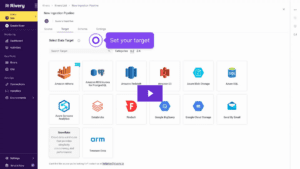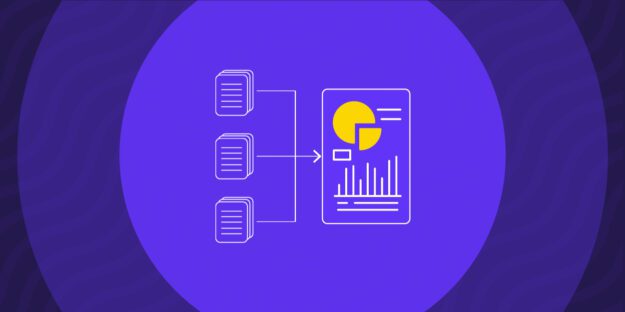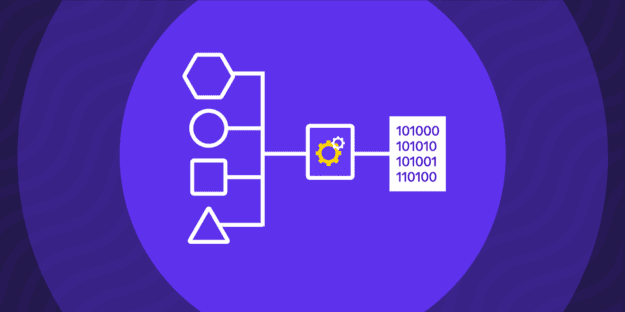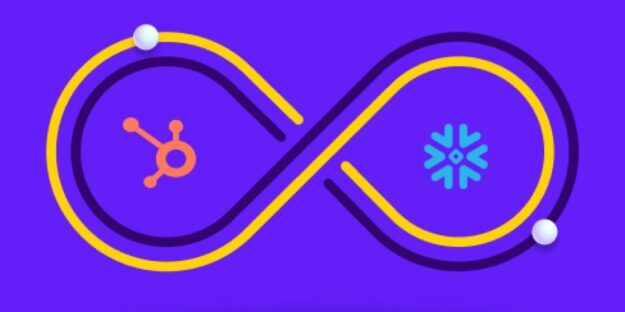Everyone in the data integration industry knows that data transformation tools are extremely important. In essence, these tools work toward simplifying the data integration procedure to deliver efficient results used for different data transformation processes.
Changing your data format can be easily done if you know what to look for in particular software. This article will discuss 10 of the top data transformation tools currently trending on the market. All of the entries on our list are at the top of their game, offering the most bang for your buck.
What Are Data Transformation Tools?
Data transformation tools are software tools that accelerate and automate the data transformation process – making it happen in minutes rather than hours. The method of transforming data is a crucial step in the data integration process.
A top-shelf data transformation tool should be able to deliver cleansing, modification, and enrichment of data with no data loss whatsoever.
Business Benefits of Data Transformation Tools
There are many tools for data transformation you could use, but from a basic standpoint, all of them should serve one main purpose: to process raw data for further analysis. Data transformation allows businesses to use raw data, whether structured or unstructured, and transform it for seamless processing, including data integration, analysis, and visualization.
Every existing team within a company’s hierarchy could benefit from data transformation, mainly because poorly structured data can pose a negative effect on all major business procedures.
All in all, 5 of the most vital business benefits of data transformation tools include the following:
- Boosted application compatibility.
- Faster data processing.
- Enhanced data management and data organization.
- Narrowed margins for error.
- Better quality of data.
13 Best Data Transformation Tools
You can find plenty of data transformation tools designed for data manipulation, but not all of them are a good fit for your business. You need to look for a particular software that fits your business plan and can help you reach your end goal.
We’ve done the research and hard work to help guide you on the top data transformation tools for 2024, so you can find the most versatile, efficient, and affordable tool for your business.
1. Rivery
Rivery is one of the top tools for data transformation that is a fully-managed DataOps platform. It works for all organizational data and can seamlessly automate, manage, and transform data models.
The SaaS platform delivers a streamlined solution for workflow orchestration, ELT pipelines, and different DataOps. If you want a scalable data stack for your business, Rivery is it —use it for unified data ingestion, SQL and Python transformations, data transformation, data orchestration, and workflow automation.
Moreover, Rivery comes with more than 200 native connectors so data engineers can easily connect to databases, file storage, apps, and data warehouses. BigQuery, Redshift, Shopify, Snowflake, Amazon S3, Firebolt, Databricks, Salesforce, MySQL, PostgreSQL, and Rest API are only some of the sources you can use.
One of the many reasons why data pros love working with Rivery is that, no matter how complex data extraction might be, Rivery’s native Python support makes it super easy to transform data from any system. Plus, with the option of change data capture replication, you won’t waste any time. You can rely on a fast and dependable data replication from a preferred database to a designated data warehouse.
Pricing
Rivery has a unique pricing model, charging per “RPU” or Rivery Pricing Unit. The monthly cost is the total sum of RPUs used during the month. There are 3 business plans:
- Starter: $0.75 per RPU
- Professional: $1.20 RPU
- Enterprise: Customizable (contact sales).
Best For
Data analysts and data scientists.
- Ever-growing list of connectors
- Simple to use and flexible
- Free/freemium version
- No setup fee
- Orchestrate your entire workflow with a user-friendly interface to build dependencies
- Adequate knowledge needed to understand error prompts
2. Qlik
Qlik has been part of the business analysis field since 1993. Today, it’s one of the major software firms offering different data solutions to pave a bridge between data, insights, and action.
Qlik offers a single cloud platform for active intelligence. If you’re looking for a data solution that can help accelerate and streamline the data warehouse design, Qlik will do a great job. Moreover, it enables you to develop, test, deploy, and update everything data-related.
The main purpose of Qlik is to lessen the time needed for data analytics by facilitating the creation of data warehouses, data management, and ETL processes.
Pricing
Available upon request.
Best For
Data engineers and data analysts.
- Great multiple source and target integrations
- No-code ETL automation
- User-centered interface
- Paid service
3. Matillion
Another one of the top data transformation tools is Matillion, a company founded in 2011. Matilion started offering business analytics as a service and continued perfecting its offers by providing software solutions to ease ETL processes.
In general, Matillion enters the data transformation space with its two main products: Matillion ETL and Matillion Data Loader. Both are fantastic data transformation tools that help data engineers migrate and load large data into a cloud warehouse of preference.
Pricing
Matillion has 4 pricing plans:
- Data Loadeer: Free.
- Matillion ETL Basic: Pay as you use.
- Matillion ETL Advanced: Pay as you use.
- Matillion ETL Basic Enterprise: Pay as you use.
Best For
Data analysts and data engineers.
- Great support of popular data sources and data destinations
- The learning curve is reasonable
- No-code ETL automation
- Inferior Git integration
4. dbt Labs
dbt Labs is the company behind dbt, which has quickly turned into the standard for data transformation for analytic and data engineers.
As one of the trending tools for data transformation, dbt Labs allows analytics engineers to manipulate data and transform it right in their warehouses by resorting to writing nothing more than SQL statements. By using dbt, data engineers can generate reliable, clean data to support operational workflows, ML modeling, and reporting.
Dbt allows for fast analytics code and generating data pipelines from start to finish.
Pricing
dbt Labs has 3 pricing plans:
- Developer: Free.
- Team: $100/m.
- Enterprise: Custom pricing.
Best For
Data engineers and analytics engineers.
- Data transformation in real time
- Flawless individual transformation support
- Very intuitive transformations
- Not for non-technical users—SQL knowledge is a must
5. Trifacta
Another of the best data transformation tools we included in our list is Trifacta, an easy to use, visual data engineering and data wrangling cloud platform. Trifacta is perfect for data teams to prep, clean, transform, and visualize raw data. In addition, data engineers can also rely on Trtifacta’s options to automate data pipelines and create reports.
With this tool, analysts can collaborate with data engineers and data scientists to simplify different data operations. One of the major perks of Trifacta is the option to connect to any data source fast and evaluate, verify, and speed up data transformation processes.
Pricing
$80 per user per month; 30-day free trial
Best For
Data analysts, data scientists, and data engineers
- Great lakehouse connection
- Amazing GitHub stars and GitHub forks
- Easy-to-use UI
- Free version is restricted to 100MB files
6. Talend
Launched in 2005, Talend is the leader in open-source integration application. You can rely on Talend to integrate big data and do seamless cloud computing and ETL operations with over 900 connectors.
Data engineers that use Talend can perform ETL and data integration super fast. Talend is open-source software that’s great for data planning, data integration, processing, and data storage in the cloud. This tool can help data teams fasten their data movement from a designated location in real time.
Pricing
Talend has 4 pricing plans with all prices available upon request.
- Stitch.
- Data Management Platform.
- Big Data Platform.
- Data Fabric.
Best For
Data engineers.
- Open-source, scalable, and performance-driven data warehouse
- Specialized ETL data extractions
- Lower error rates
- No free version
7. Hevo Data
Hevo Data is a no-code data pipeline that helps data scientists replicate data from any data source with practically no maintenance. A major perk of Hevo Data is its free trial option, valid for 14 days. During this period, you can move data from more than 150 ready-to-use integrations, including many databases and SaaS.
The best features of Hevo Data include simplifying ETL, ELT, and reverse ETL data pipelines. You can either drag and drop pre-fabricated transformation blocks in the dashboard or write Python scripts to launch data transformations.
Pricing
Hevo Data has 3 pricing plans:
- Free: $0.
- Basic: $239.
- Enterprise: Custom pricing.
Best For
Data scientists and data engineers
- Super user-centered
- Seamless operations
- Perfect for replicating data from several different sources
- Calls for some manual mapping
8. Datameer
Another of the best data transformation tools for 2024 is Datameer. The software delivers great data modeling and data transformation toolsets that even technical laymen can use. The tool streamlines the analytic engineering processes and speeds up the generation and delivery of datasets, which will be used in machine learning, reporting, and analytics.
By using Datameer, business teams that aren’t knowledgeable in SQL can generate their own databases within Snowflake and use a no-code visual interface. Data engineers will find Datameer especially useful when reviewing or optimizing databases for modeling or transformation purposes.
Pricing
Individual plans begin at $100.
Best For
Non-coding data analysts.
- Intuitive complex and multi-stage transformations
- Code and no-code data transformation
- Great data integration and visualization features
- Limited to Snowflake
9. Informatica
Informatica is a tool that’s perfect for extracting, transforming, and loading data into a data warehouse without breaking a sweat. Informatica is best used in enterprises looking to navigate across different databases in real-time.
You can transform any type of data format and size into clean, usable data in no time. Informatica allows data teams to map the transformation they need once and then simply deploy the command whenever needed without writing code. Informatica supports SWIFT, HIPPA, ACORD, and more industry-approved formats.
If you decide to give Informatica a go, you’ll get two options to choose from: Power Center, which is an ETL platform for large enterprises, and Cloud Data Integration, which is great as an IPaaS (Integration Platform as a Service).
Pricing
Basic plan starts at $2,000 a month.
Best For
Data engineers at large enterprises.
- Perfect for large data requirements
- Seamless scaling
- Pre-built libraries of prevalent transformations
- Transformations are built around XML
10. Keboola
Keboola is a data transformation software used to automate pretty much all data operations. It delivers a full data sack as a service, and everything is nicely connected so data engineers can easily track every process.
Keboola offers end-to-end solutions, ETL, metadata management, web services, and more, all from one place. The software comes with more than 250 pre-built integration solutions, so you can easily find a suitable source and destination for seamless data integration.
Pricing
- Free: $0.
- Enterprise: Custom Pricing.
Best For
Data engineers and data scientists.
- Availability of scaling the backend
- Low-code transformations in SQL, Python, R, and Julia
- No-code transformations and customizable data pipelines
- Datatypes in storage can seem complex when onboarding the tool
11. AWS Glue
AWS Glue is Amazon’s fully managed extract, transform, and load (ETL) service; the tool makes preparing and loading data for analytics straightforward. With AWS Glue, you can discover, catalog, and transform data in the cloud or on-premises. Its serverless architecture automatically provides the resources and scales any workload.
AWS Glue integrates with other AWS services–such as Amazon S3, Amazon Redshift, and Amazon RDS—for data storage, processing, and analytics. You can also visually create, schedule, and run ETL workflows using AWS Glue’s flexible job scheduler.
Pricing
Pay-as-you-go pricing model, where you are charged based on the number of execution hours and data processing units consumed.
Best For
Enterprises seeking a fully managed, serverless ETL solution integrated with the AWS ecosystem.
- Handles infrastructure, scaling, and maintenance.
- Pay only for resources used.
- Seamless integration with AWS services.
- Requires some learning and experimentation.
- Less customization compared to traditional tools.
- Costs can escalate with data volume and job frequency.
12. Denodo Platform
Denodo Platform is a data virtualization solution that allows organizations to integrate, govern, and deliver data in real-time. Its virtual data layer abstracts underlying data sources, providing a unified view of disparate data across the enterprise.
In addition, the Denodo Platform enables real-time access to data from various sources, providing up-to-date insights for decision-making processes. Denodo Platform also ensures data security and compliance through fine-grained access controls and governance policies. As such, this maintains data integrity and regulatory compliance standards.
Pricing
Pricing depends on various factors, such as the number of CPU cores, data sources, and additional features required.
Best For
Organizations requiring real-time access to diverse data sources without the overhead of data replication.
- Provides real-time access to data from various sources.
- Minimizes data redundancy and storage costs.
- Supports hybrid and multi-cloud deployments.
- Requires specialized skills and expertise.
- Performance overheads compared to direct data access methods.
- The pricing structure can be complex and may incur significant licensing costs.
13. Azure Data Transformation
Azure Data Transformation is Microsoft’s cloud-based data transformation service; it offers many tools and capabilities for data integration, cleansing, and transformation. It combines with other Azure services, enabling organizations to build end-to-end data pipelines and workflows.
Azure Data Transformation prioritizes data security and compliance, offering robust security features and regulatory compliance certifications. It provides comprehensive monitoring dashboards, alerts, and logging capabilities; these allow proactive monitoring and troubleshooting of data integration processes.
Pricing
A flexible and consumption-based pricing model, where organizations pay only for the resources consumed.
Best For
Enterprises looking for a scalable, cloud-native solution for their data transformation needs.
- Offers scalability to handle varying workloads and data volumes.
- Integrates with other Azure services.
- Built on Azure’s cloud infrastructure.
- Companies may face vendor lock-in.
- Users may encounter a learning curve.
Factors to Consider While Choosing Data Transformation Tools
When it comes to which data transformation software will suit your business needs best, you can get to the answer in no time if you know what to look for. For instance, the following 5 questions can help you land the best decision for your specific needs:
- What makes your data source?
- What’s the destination you’re aiming to move your data to?
- What kind of data transformation do you need to conduct?
- What kind of professional support are you looking to get?
- How much are you willing to spend?
When you answer these questions, you’ll get closer to better understanding your business needs and choose one of the best data transformation tools.
How Can Rivery Help?
Rivery stands out as one of the best data transformation tools, simplifying data transformation and integration like never before.
Rivery offers:
- Seamless Data Transformation: Effortlessly manage and manipulate your data with Rivery’s powerful tools, designed to eliminate the need for manual coding.
- End-to-End ETL Pipelines: Build and maintain complex ETL pipelines, streamlining your data processes from extraction to loading.
- Integration with Any Data Source: Connect Rivery to virtually any data source, ensuring flexibility and speed in data delivery.
- Accelerated Data Delivery: Experience faster and more efficient data flows, enhancing your ability to make data-driven decisions.
Book a demo today and see this tool in action!
Minimize the firefighting. Maximize ROI on pipelines.





